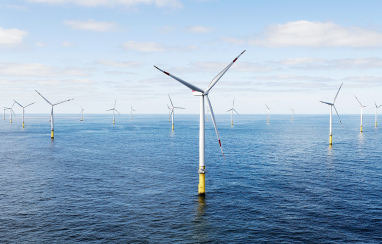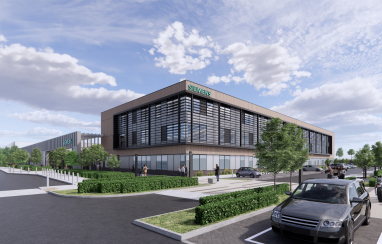- Nike SF Air Force 1 Mid Ivory Olive917753-101 , IetpShops , Release Reminder: Nike Kobe VIII (8) 'Black History Month'
- air jordan 1 low outlet
- The Global Destination For Modern Luxury
- Nike Air Max 90/1 "University Red" Release Info - Nike Air Max 96 2 Women's Shoes White - StclaircomoShops
- Air jordan 6 rings bred black university red white yellow strike playoffs big kids - 001 Release Date - air jordan 1 retro first class flight white dynamic yellow black 2021 DN4904 - SBD
- air jordan spring 2021 retro collection release date info
- Usher Air Jordan 11 Gold Sample
- best nike basketball shoes
- Air Jordan 1 Satin Black Toe CD0461 016 2019 Release Date 4
- Travis Scott Air Jordan 1 High OG CD4487 100 Release Date Price
- Home
- News and analysis
- Info hubs
- Events
- Video
- Case Studies
- About us
- Magazine
- Advertising
Produced for the industry by the Association for Consultancy and Engineering
News
10-year government pledge sets out £600bn of infrastructure investment by 2028

Ministers have reiterated their commitment to developing major infrastructure projects as they unveil £600bn worth of investment over the next decade.
Central to the success of the £600bn pipeline is a renewed focus of implementing more modern approaches to construction as the government calls for expertise to advise on greater use of cutting-edge techniques.
As the sector continues to fall behind it rivals in terms of productivity, policy makers are keen to apply more manufacturing approaches in the hope of boosting levels and reducing waste by as much as 90%. Manufacturing components in factories using the latest digital technology before being sent for assembly on construction sites is one example of achieving this.
The mass investment programme within the government’s national infrastructure and construction pipeline include the £28 billion national roads fund, as well as other flagship projects like East West Rail, upgrading the M6 to a smart motorway and Hornsea Project One – the largest offshore wind farm in the world.
Commenting on the pipeline, chief executive of the Infrastructure and Projects Authority, Tony Meggs, reaffirmed how important government was in driving productivity as the largest client for infrastructure projects.
“We recognise there is significant momentum within the sector to scale up the adoption of more modern and innovative practices and it is the role of the IPA to help coordinate this approach across new infrastructure projects,” he added. “We would like to hear from a range of industry experts on government’s proposals for a Platform Approach to Design for Manufacture and Assembly.”
Today’s announcement is part of proposals which ministers hope will contribute to the government's objectives outlined in the Industrial Strategy, the Construction Sector Deal and the Transforming Infrastructure Performance programme, including a presumption in favour of offsite construction announced at Autumn Budget 2017.
As part of efforts to be the driving force in offsite construction, four government departments have already embedded the principle into their practices including the Ministry of Defence, the Department for Health and Social Care, the Ministry of Justice and the Department for Education.
The exchequer secretary to the Treasury, Robert Jenrick added: “We are committed to renewing our infrastructure to drive economic growth in all parts of the United Kingdom. Over the course of this parliament, investment in economic infrastructure will reach the highest sustained levels in over 40 years. And as the pace of technological change accelerates, we are stepping up our commitment to digital infrastructure, use of data to drive greater productivity and embrace new methods of construction.”
Industry has broadly welcomed the publication of the updated National Infrastructure and Construction Pipeline with some believing it could play a critical role in driving economic growth across the UK. However, others said that there wasn't enough detail of future investment plans in the pipeline.
Hannah Vickers, chief executive of the Association for Consultancy and Engineering, said: "The pipeline is a useful planning tool for industry and provides a long-term view on the investment plans of government, councils and the private sector. However, the 2018 publication does not demonstrate how we are going to meet the country's needs in the longer term, as outlined in the National Infrastructure Assessment published earlier this year, and is therefore of limited use.
"As it currently stands, we are reaching the end of the spending review and AMP settlements which bring their own levels of uncertainty in the medium term. Furthermore, the pipeline excludes detail on most regional transport spending. All of this means SMEs, and those who work on smaller projects, have fewer opportunities to plan and engage. The industry wants the pipeline to deliver the right blend of short-term certainty and a longer-term direction of travel. This will ensure we have the confidence to robustly prepare for delivery and the opportunity to proactively respond to the challenges of delivering the pipeline in its entirety. There is an opportunity in next year's iteration and on conclusion of the spending review and AMP settlements, to provide a comprehensive and sound view of future investment plans."
CECA director of external affairs, Marie-Claude Hemming said:“We especially welcome record investment for our road network, improving journeys for all and helping to make the UK an attractive place to live and work. Delivery of such substantial investment to drive economic growth, goes hand in hand with driving greater efficiencies and exploring opportunities for transformative innovations where possible. To this end, we look forward to working with government and the wider industry to ensure this pipeline is delivered effectively, drawing where we can upon the new technologies available.”
WSP director Adrian Hames said: “Our society is changing, and so are our businesses, and the need to build modern and most importantly flexible infrastructure that makes use of the latest technology has never been greater. As we gear up towards Brexit, we need to find new ways to attract private investment so we get construction underway and start delivering on these transformational infrastructure if we’re to truly maintain our edge as a global leader.”





